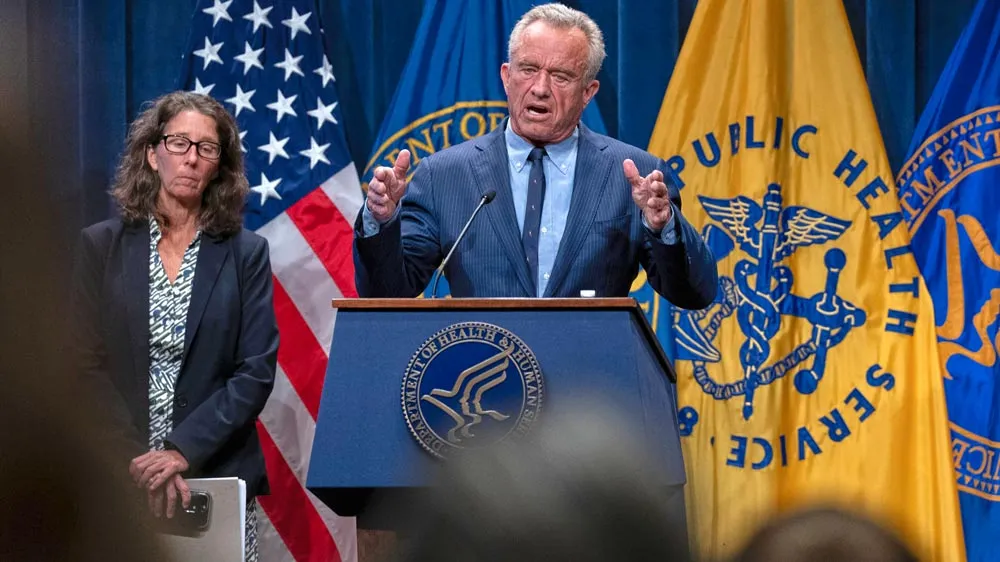January 10, 2015
Wyoming Officials Look at Gay Discrimination Protections
Jason St. Amand READ TIME: 3 MIN.
The Wyoming Department of Workforce Services has received about 40 complaints over the past four years from state residents alleging job discrimination based on their sexual orientation, an official said Friday.
Agency administrator Cherie Doak said her office has investigated and forwarded 10 of those complaints to the U.S. Equal Employment Opportunity Commission. She said she's not aware that any of those resulted in legal action against employers.
Among the allegations Workforce Services investigated and forwarded to the EEOC, Doak said there were complaints that co-workers had placed human excrement in complainants' lockers and lunch boxes.
"One complainant alleged he was tied naked to the front of a pickup and then his co-workers played 'chicken' with that pickup," Doak stated.
Doak said, however, that people making the complaints often don't follow through with legal action.
"Sometimes, particularly with the most egregious ones, unfortunately, the charging party just goes away," she said. "They feel like they've been through enough."
Rep. Cathy Connolly, D-Laramie, has said she will push a bill in the legislative session that starts next week to prohibit discrimination on the basis of sexual orientation.
Similar measures have failed in the past. But Connolly said recently she expects that since same-sex marriage became legal in the state through federal court action last year, she believes the anti-discrimination bill stands a better chance.
Incoming Wyoming Senate President Phil Nicholas, R-Laramie, said this week he also believes the discrimination issue is a different question than whether lawmakers agree with the federal decision on same-sex marriage.
"In general, I think we do believe in Wyoming that every person is a good person," Nicholas said. "They're all our neighbors, and we should use the golden rule with respect to everybody."
Connolly said her bill would address various provisions of state law, such as qualifications for serving on juries, and specify that people can't be excluded because of sexual orientation or gender identity. If it passed, she said Workforce Services could take action itself against employers who discriminate.
As a state agency, Workforce Services isn't able to lobby for changes in state law. However, Doak said changing the law to prohibit discrimination on the basis of sexual orientation would allow her agency to take steps to inform employers that it's unacceptable.
"If the law gets in place, we would then be able to proactively approach the employers, sort of more affirmatively, say, 'this is the law, this is how you want to approach it,' like the movement that occurred after the landmark sexual harassment cases in the early 1980s," Doak said.
A new group called Compete Wyoming announced this week that it also will lobby for the anti-discrimination bill with an emphasis on helping the state's business profile. The group emphasizes that many large corporations already have such policies internally.
Liz Brimmer, organizer of Compete Wyoming and a longtime legislative lobbyist, said Friday it's important to add sexual orientation and gender identity to state law, "to enable protection for everyday working Wyoming people."
Brimmer said the current system, in which some complaints are forwarded to the EEOC, is inadequate.
"People are being hurt," she said. "They're being harassed, and they're being intimidated in the work place."
Wyoming Equality, a group that has pressed the state to acknowledge the rights of gay, lesbian and transgender people, also will lobby for the anti-discrimination bill this session, director Jeran Artery said recently.
Artery's group also will emphasize that Wyoming stands to lose business if large corporations don't have assurance that their employees would be protected in the state.
According to the EEOC's national website, the agency began tracking information on allegations of discrimination related to sexual orientation in January 2013. In the last three quarters of fiscal year 2013 and the first three quarters of 2014, the agency has received over 1,300 such complaints.







